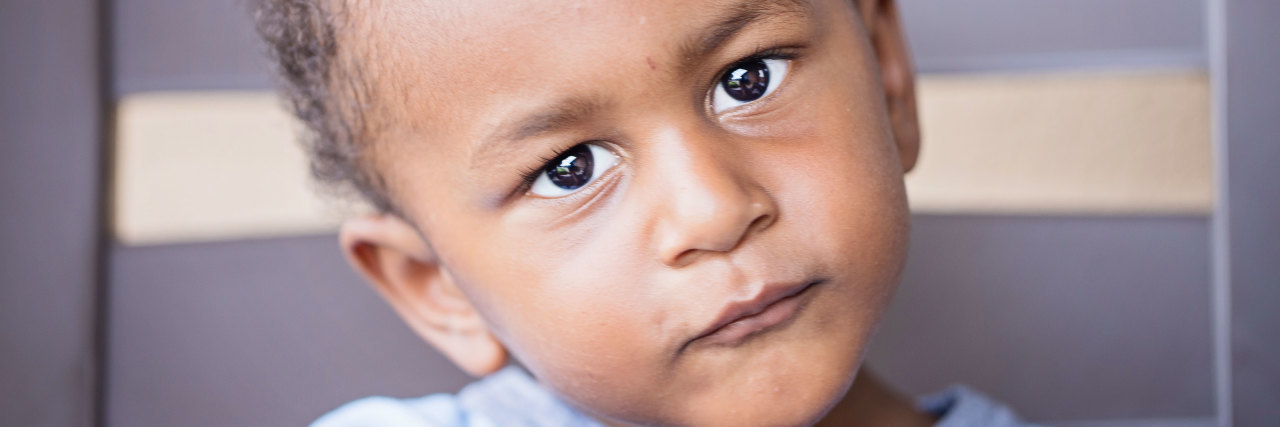“What’s his diagnosis?”
I can’t tell you how many times I’ve heard this question from friends, family, and complete strangers, followed by a well-meaning, “maybe he’ll grow out of it.” I’ve been on a journey to answer this question for a year and a half now. It’s been months of endless appointments, needle pokes, and sedations, MRIs and sleep studies, chromosomal testing and genetic tests. Following each and every one of those doctor’s visits, I left crying and angry because I still had no answers.
We live in a world filled with labels — constantly checking boxes for race, gender, marital status… and diagnosis. Well, my son has health needs, collectively, that are unique to him. More specifically, he has an array of symptoms that don’t really fit into a single category. We’ve seen doctors from coast to coast, undergone multiple tests, and still don’t have “the answer(s).” We started on this journey when he was 5 months old, and in a few weeks he will be 2.
The need to put a label on my son’s symptoms is important to me for many reasons. Some of the reasons may be selfish, but many of the reasons are so we can access appropriate services and educate ourselves as parents, in order to give him the best possible life. Furthermore, parents who don’t have a clear diagnosis, or have a child with a rare condition, are often set apart from other parents and even left out of the conversation surrounding children with disabilities. Connecting with a parent group for emotional support and education when you don’t have a diagnosis is also more challenging.
When we first began our diagnosis journey a year and a half ago, I was not only battling depression, but also suffering from anxiety, stress, and exhaustion. My husband was 8,000 miles away on deployment and I was alone, attempting to navigate the scary and confusing health care system for kids with disabilities. Every doctor’s visit and every test result was like hitting another brick wall. The wall kept getting built up again, and each time grew bigger and bigger.
At my husband’s urging, I sought out mental health counseling, and with the support of friends, family, and my faith, I eventually grew into a place of accepting uncertainty and being happy even without having all the answers right now. That doesn’t mean I will ever stop searching for a diagnosis for my son. However, I did stop fixating on the negative and started to embrace the possibilities. The next step in our diagnosis journey is to try whole exome sequencing, which takes months for a result and a yields a very small percent chance of us finding anything. Regardless of the outcome, we will be OK.
If you don’t yet have a diagnosis for your child, remember this: you are not alone. There are hundreds, maybe even thousands of other parents out there just like us. It’s helpful to talk to others who have been down that path before you. Never ever give up, and stay focused on the big picture. We are confident that in our son’s lifetime, we will have an accurate medical diagnosis for his symptoms. In the meantime, we’ll settle for the following: playful, cute, sweet, lovable, strong, and most importantly — happy.

